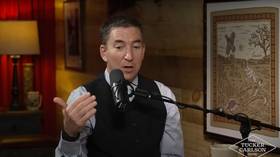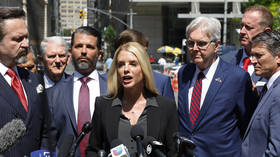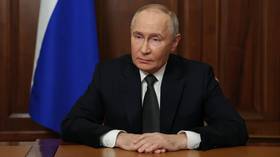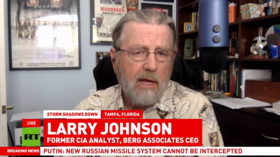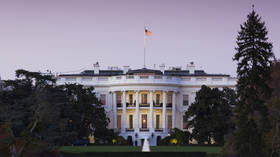Soviet symbols dispute in Europe
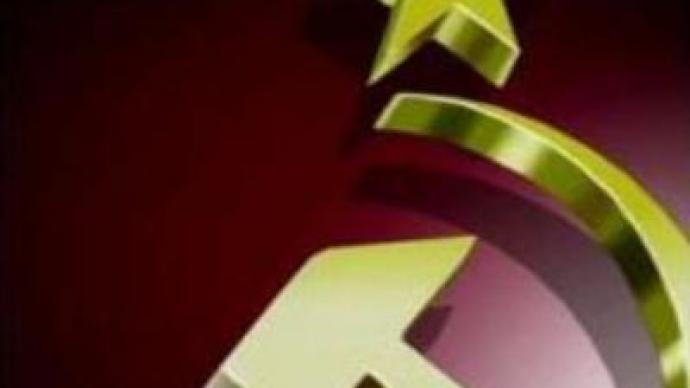
As Russians prepare to commemorate Victory Day on May 9, Soviet war memorials across Europe have become a source of contention. Practically every town and city reached by the Soviet Army has its memorial.
The Treptower park in the Eastern part of Berlin, both a monument and grave, has become a memorial to two wars – World War II and the Cold War.Siegfried Burmester had to choose sides in both. He joined the Hitler Youth towards the end of the war, was captured, and imprisoned in the Soviet Union for 4 years. “I belong to those who came home late, but during the time in the Soviet Union my mind has changed and I went from a Nazi to a socialist,” he says.For Siegfried Burmester there is no other way to read the Nazi defeat and on May 9 he comes to the park with other veterans to lay flowers at the monument.Across much of Europe Soviet war memorials now provoke mixed emotions. The Soviet Army did liberate great part of Europe and got rid of Nazi rule at a cost of 30 million lives. But for Eastern Europe the memories of communist domination are bitter. And after the collapse of Soviet rule the fate of these monuments is often similar to that of communist relics.The small city of Torgau South of Berlin has a big story to remember.On April 25, 1945, American forces linked up with the Red Army, on the river Elbe. The Day is commemorated every year. The handshakes of American and Soviet soldiers sealed the defeat of Nazi rule. The ideological barriers were erased but just for that moment.For many people the meeting between the American and Soviet soldiers also carried a seed that split Europe into East and West for more than 40 years. In Berlin, Soviet war memorials today are well-kept. But in many other countries their future is now under question. More than 60 years after the war there seemed to be no end to the debates over the role of each country in that war but the truth is it was a devastating tragedy, one that took tens of millions of lives and war memorials are meant to honor those dead – not to battle against them.Meanwhile, Poland's Ministry of Culture is to submit a bill to parliament, calling for the dismantling of monuments it refers to as “symbols of foreign domination”. Although the Ministry is adamant the bill is not aimed at Soviet war graves, the proposal has drawn sharp criticism in Russia.The memory of the Soviet army as “liberator” is cherished in Russia. But it conjures mixed emotions in Eastern and Central Europe.On the one hand, Soviet troops expelled the forces of Nazi Germany from its territory at a staggeringly high cost in lives lost. On the other hand, the liberation ushered in decades of Soviet domination.In April, Polish Minister of Culture Kaziemierz Ujazdowski proposed that symbols of dictatorship by foreign powers be removed from public places.The Minister insists the draft is not targeted against Russia or the graves of the Red Army soldiers that liberated Poland from Nazi occupation.Poland has more than 500 such monuments. But recent protests in Estonia and Russia over the removal of the statue of the Bronze Soldier may have had and effect on Polish legislators. Some in Poland believe the issue will have to be handled with great sensitivity. “We don't want the repetition of the Estonian events, our politicians don't want this. That's why the presentation of this law has been postponed. They want things to calm down. Yet I think this law will be put into practice because decommunisation is one of the aims of our government as well as of our society. Our situation is somewhat close to Estonia, but yet it is different, of course we have some unpleasant memories connected with the communist era. We didn't want the Soviet rule,” Polish journalist Justyna Prus said.Russia's parliament and the Foreign Ministry have condemned the initiative. Foreign Minister Sergey Lavrov calls the proposal an attempt to re-write history, and accuses the EU and NATO of turning a blind eye. “The memory of the victory does not fade away. It’s sacred for us. And we cannot put up with the blasphemous attempts to abuse history or rewrite it. These attempts are becoming a part and a tool of foreign policy of some states. Regrettably, such organisations as NATO and EU are ignoring these attempts,” Sergey Lavrov stressed.Russia says there are agreements protecting Soviet war graves and memorials abroad. “In Western Europe there are 10,000 graves where almost a million soviet soldiers lie. There are 10 intergovernmental agreements on the status of war graves and their protection with European countries in particular with Poland, Hungary, Slovakia, etc. They also provide for their maintenance, preservation and restoration. To my mind these agreements have been successful,” noted Aleksandr Kirilin, a Major General from the Military Memorial Center of the Russian Defence Ministry.Aleksandr Kirilin will be the new head of a commission that will oversee the care of almost all Soviet war graves in Europe. The commission will try and co-ordinate what's currently done by a number of agencies to simplify the care and maintenance of memorials and cemeteries.
You can share this story on social media:



